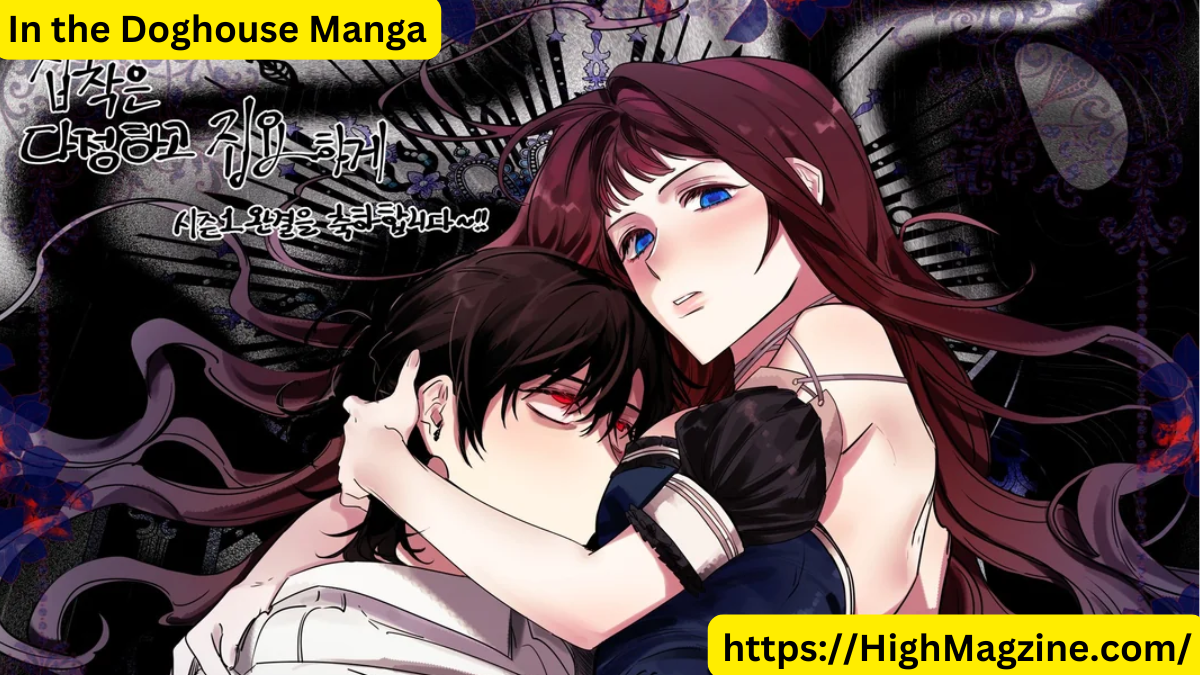In the Doghouse Manga has long been known for its wide variety of genres, themes, and emotional depth. One of the genres that has garnered significant attention in recent years is the “slice of life” category, which often delves into the intricacies of daily life, relationships, and personal growth. Among these slice-of-life manga, In the Doghouse stands out as a unique exploration of romantic relationships and the comedic tension that arises from misunderstandings, apologies, and forgiveness.
In the Doghouse may not be as well-known as some of the more prominent series in the manga world, but its charm lies in its ability to blend humor with deep emotional resonance, focusing on the dynamics of a couple in the midst of conflict and reconciliation. This article delves into the themes, characters, and appeal of In the Doghouse, shedding light on what makes it a memorable read for fans of romantic comedy.
The Premise of In the Doghouse
In the Doghouse revolves around the central relationship between two main characters: Haruto and Aki. Haruto, a well-meaning but somewhat dense young man, finds himself in a constant state of confusion when it comes to his relationship with Aki, his girlfriend. Aki, on the other hand, is an intelligent and strong-willed individual, but she has a tendency to be a bit too sensitive, especially when it comes to her emotions.
The title of the manga, In the Doghouse, is a metaphorical representation of the place Haruto often finds himself in when he inadvertently messes up or fails to understand Aki’s feelings. His inability to properly communicate or grasp the gravity of a situation often leads to humorous misunderstandings that place him in a figurative “In the Doghouse Manga” These situations typically revolve around small everyday issues or romantic gestures gone wrong, making the narrative relatable to many readers.
However, what makes In the Doghouse stand out is how it uses these comedic moments as a platform to explore the deeper aspects of relationships. As Haruto struggles to get back into Aki’s good graces after a mistake, the story delves into themes of personal growth, emotional vulnerability, and the importance of compromise and communication in a relationship.
Humor and Misunderstandings: The Driving Force
One of the defining features of In the Doghouse is its light-hearted yet thoughtful approach to humor. The manga relies on a series of misunderstandings and comedic scenarios that result in Haruto’s temporary fall from Aki’s favor. These moments of conflict are exaggerated for comedic effect, often leading to situations where Haruto is forced to perform elaborate or humorous gestures to make amends. While this may seem like a simple setup for a comedy, it serves a deeper purpose within the context of the manga.
Through these misunderstandings, the manga explores the ways in which communication can break down in relationships. Haruto’s inability to read Aki’s emotions or understand the subtleties of her actions mirrors the common struggles many couples face in real life. This theme of miscommunication is something that readers can easily relate to, as it reflects the challenges of navigating a relationship with honesty, empathy, and mutual respect.
While the situations themselves may seem trivial—such as forgetting an important date or misinterpreting a comment—the impact on the characters’ relationship is anything but small. The humor in In the Doghouse doesn’t undermine the emotional stakes; rather, it highlights the vulnerability that both characters feel as they try to navigate the ups and downs of their romance.
The Characters: A Dynamic and Realistic Pair
At the heart of In the Doghouse are its two lead characters: Haruto and Aki. Their relationship feels authentic, which is a testament to the manga’s skill in portraying the nuances of human connection. Haruto is the kind of character who is well-meaning but often finds himself in situations where his lack of awareness creates chaos. He is earnest and often well-intentioned, but his cluelessness can be both endearing and frustrating, making him a relatable character for readers who may have experienced similar challenges in their own relationships.
Aki, in contrast, is more composed and aware of her emotions. However, her tendency to keep things to herself or expect Haruto to “just know” what she needs adds a layer of complexity to their relationship. Aki’s sensitivity and her tendency to overthink make her a character that many readers can empathize with, especially when she feels misunderstood or unappreciated.
The dynamic between Haruto and Aki is where the true charm of In the Doghouse lies. Their relationship is not without its flaws, but it is clear that they care deeply for each other. Despite the constant misunderstandings and moments of tension, they both want to make things work. Their willingness to forgive one another and learn from their mistakes is what makes their journey so compelling.
The Emotional Core: Growth and Resolution
While In the Doghouse relies heavily on humor and light-hearted conflict, it also doesn’t shy away from exploring the emotional depth of its characters. The manga portrays how people in relationships evolve as they face challenges together. Haruto’s growth throughout the story is one of the most poignant aspects of the series. As he continues to stumble through misunderstandings, he learns more about Aki’s needs, desires, and emotional triggers. His efforts to do better reflect the desire for self-improvement that is often present in relationships, where both partners must grow in order to support each other.
Aki, too, undergoes her own emotional journey. She learns to communicate more openly and express her feelings instead of expecting Haruto to read her mind. Their personal growth is mirrored in their relationship, which evolves from one of simple attraction to one of mutual understanding and compromise.
The emotional resolution in In the Doghouse is often bittersweet, with both characters confronting their own insecurities and mistakes. The manga doesn’t offer a perfect, fairy-tale ending. Instead, it portrays a relationship that is messy, imperfect, and full of moments of tension, but ultimately grounded in love and respect. This realistic portrayal of In the Doghouse Manga relationships, where conflict is inevitable but resolution is always possible, is what makes In the Doghouse such a compelling and relatable read.
Conclusion: A Modern Take on Romance and Comedy
In the Doghouse is more than just a comedy about misunderstandings between a couple. It is a nuanced and heartfelt exploration of what it means to be in a relationship, to make mistakes, and to learn how to navigate the complexities of emotional connection. The humor, while often exaggerated, is grounded in the truth of how communication issues and emotional missteps can cause tension in relationships. Ultimately, it is the growth of the characters, both individually and as a couple, that provides the true heart of the manga.






